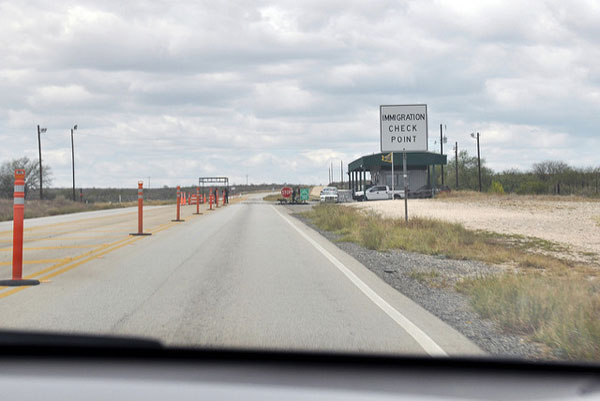
August 28, 2017; Democracy Now
Amy Goodman’s Democracy Now reported this week that immigrants in the path of Hurricane Harvey were afraid to evacuate to shelters or approach authorities to seek help due to a new state law set to go into effect Friday that allows police to ask people they detain for their immigration status. This sense was so widespread that the City of Houston made two tweets—one bilingual—to dispel it.
WE WILL NOT ASK FOR IMMIGRATION STATUS OR PAPERS AT ANY SHELTER. No vamos a pedir documentos ni estatus migratorio en ningun albergue
— City of Houston (@HoustonTX) August 29, 2017
“People who [are] undocumented simply just do not trust officials and what their word is, because we have seen them targeted even before the implementation of [the new law],” Amy Fischer, policy director for RAICES, a Texas-based nonprofit legal advocacy organization, told Goodman. “We have seen them racially profiled. A few years ago, when Hurricane Sandy hit New York, DHS announced that they would essentially pause immigration enforcement so that no family would have to make the decision between trying to survive a storm or seeking help and being subject to detention and deportation. And that simply did not happen this time.”
Amid the worldwide crackdown on migrants and refugees, fear of “going public”—even in times of extreme emergency—is growing among immigrants, both legal and otherwise. In June, when fire destroyed London’s Grenfell Tower, volunteer doctors and lawyers reported that some residents who escaped were too frightened to seek medical and legal help for fear of being reported to the Home Office due to their irregular immigration status.
And earlier in the year, local radio stations reported that some Latino wildfire victims in Tennessee were reluctant to apply for FEMA aid. “There are many things that separate the Hispanic community,” Pastor Susana Lopez, who ministers at Connexion, a predominantly Latinx church, told WBIR in Knoxville. “Education levels, language barriers, documentation barriers. It’s—‘I don’t know if I can seek help without being at risk.’”
Sign up for our free newsletters
Subscribe to NPQ's newsletters to have our top stories delivered directly to your inbox.
By signing up, you agree to our privacy policy and terms of use, and to receive messages from NPQ and our partners.
As a result of that fear, she said, many immigrants rely on church communities for help. That offers a lesson for all nonprofits in communities that could be hit by disaster in the future—a growing number as climate change accelerates. North America was hit by more natural disasters in 2016 than in any other year since 1980, with 160 events recorded. In the first half of 2017, six (now seven) severe, large-scale thunderstorms were recorded, each causing billions of dollars of losses.
Peter Höppe, head of Munich RE’s Geo Risks Research division, says, “The unusual atmospheric conditions in the USA in the first half of 2017 provided the perfect conditions for powerful supercell thunderstorms…The number of tornadoes observed in the first quarter of 2017 was twice as high as the average for the last 10 years.”
More of the same is expected. The National Oceanic and Atmospheric Association (NOAA) issued a report this month, saying that, “Forecasters are now predicting a higher likelihood of an above-normal season, and they increased the predicted number of named storms and major hurricanes. The season has the potential to be extremely active, and could be the most active since 2010.” The update predicted “a 60 percent chance of an above-normal season (compared to the May prediction of 45 percent chance), with 14-19 named storms and two to five major hurricanes).”
Immigrants, particularly those with unresolved status, will continue to be extremely vulnerable and likely to be fearful in the current political climate of accessing what services are available.
“Those immigrants who lived under the radar before the disaster remain under the radar afterwards as well,” notes a manual for first responders from the Lutheran Immigration and Refugee Service (LIRS).
In addition to lack of trust in government officials, barriers include a lack of language proficiency, unfamiliarity with the agencies and bureaucratic processes required to apply for aid, and an overreliance on in-home caches of cash in lieu of banks. LIRS says the best way to address these systemic challenges is to be proactive—beginning to build trust, relationships, and deep social connections well before a disaster occurs.
“Newcomers have unique issues during times of crisis. Some, if not addressed, can have disastrous results,” warns the manual. “Most of these issues can be tackled much more easily with some planning and intentional outreach and inclusion. Disaster preparedness plans work best when relationships based on mutual understanding are built before an emergency strikes.”—Pam Bailey













